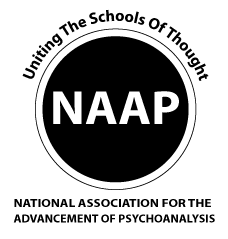Accreditation practices have evolved over many centuries. We can trace their roots to the guilds of the Middle Ages, whose craftsmen and merchants established common practices and standards for their crafts and services. The guild apprenticeship was born then, which led to the training and formation of the modern professions from the mid-1700s into the 19th century. The entry of the middle classes into the professions during the late 1900s brought renewed vigor to the organizing of common standards for skills and training. And today, we look to the emerging definitions of Core Competencies to guide and inform the standards we seek to achieve in our professional training and practice as psychoanalysts.
By history’s standards, psychoanalysis is a recent profession, emerging from Sigmund Freud’s work at the turn of the 20th century. In 1972, psychoanalysts throughout the U. S. undertook to organize common, independent standards for the training and practice of this new profession, which gave birth to the National Association for the Advancement of Psychoanalysis (NAAP). Motivated to define standards independently of the medical profession, practitioners representing the entire theoretical range of this fledgling profession joined together to establish common training requirements. This act established the path toward formalizing the independence of the psychoanalytic profession.
In 1997, the American Board for Accreditation in Psychoanalysis, Inc. (ABAP) was separately incorporated to establish further autonomy between the standard setting and accreditation tasks and the membership functions of NAAP.
Since then, ABAP has been improving our common standards, and evaluating and accrediting diverse post-graduate training programs. Our mission is to reinforce the common criteria for psychoanalytic training while respecting the uniqueness of the profession’s evolving theoretical traditions.
Our member institutes, who seek to engage the ongoing refinement of our profession’s standards, gain accreditation through voluntary participation. To candidates in training, accreditation means that your institute chooses to carry the banner of good practice standards; and to the public, accreditation speaks to the integrity of the training standards by which your psychoanalyst was trained.
Visit ABAP and learn more about accreditation and the wonderful profession of psychoanalysis.
 Jennifer R. Harper, MDiv, NCPsyA, LP
Jennifer R. Harper, MDiv, NCPsyA, LP
Chair, American Board for Accreditation in Psychoanalysis, Inc.
